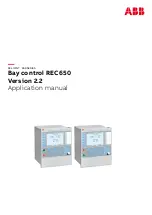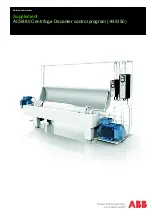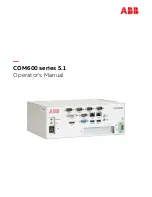
36
®
TEST CHECKOUT PROCEDURES
Normal Pilot Flame Test
CAUTION: Before making a pilot flame test, manually shut off the fuel supply to the main
burner.
1.
At the start of PTFI, place the Check-run switch in the check position.
2.
Observe the pilot flame signal on the display. If the average signal is below the minimum of 10,
readjust the pilot flame or realign the flame detector.
3.
During the pilot flame test, if flame is not detected for a continuous 30 seconds, the control will
lockout. To re-establish the pilot flame trial for ignition (PTFI), manual reset of the lockout switch
is required, and a complete prepurge accomplished.
4.
When UV flame detection is used, a test is required to verify that UV radiation from the ignition
spark is not being detected. To accomplish this, manually shut off both pilot and main fuels. Initiate
a normal start-up, and when the PTFI display comes on, observe the display which should read no
signal more than 4. If more than 4 is observed, realign the UV scanner, and/or shield the spark from
the scanner’s view.
5.
With all methods of flame detection, check pilot flame failure response by manually shutting off
the pilot fuel and then initiate a normal start-up. With no pilot flame present, the control will de-
energize the pilot assembly at the end of the trial for ignition interval, and the control will lockout.
Also check to verify that the ignition spark does not “give” a flame signal on infrared or flame rod
applications.
Main Flame Test
NOTE: This test requires an interrupted pilot (a pilot that shuts off after main flame has been estab-
lished.
1.
Proceed through a normal startup. After the pilot flame is shut off, observe the reading on the dis-
play. If the signal reading is low, readjust main flame or realign detector.
2.
Check main flame failure protection by manually shutting off the main fuel supply. Within 4 sec-
onds after main flame goes out, the fuel valve will be de-energized. The alarm circuit will be ener-
gized following safety lockout.
Minimum Pilot Test
CAUTION: The minimum pilot test must be accomplished by a trained and qualified burner
technician.
This test assures that the flame detector will not detect a pilot flame too small to reliably light off the
main flame. The test should be made on every new installation and following any reapportioning of the
flame detector. This procedure should not be used on a direct spark ignited burner.
1.
Turn off the main fuel supply manually.
2.
At the start of PTFI, place the Check-run switch in the check position.
3.
Reduce the fuel supply to the pilot until the display reads below 10.
4.
Slowly increase the fuel to the pilot until the display reads 10. This is minimum pilot flame that the
flame detector will reliably detect.
5.
Place the Check-run switch in the Run position. When the main fuel safety shut-off valve is ener-
gized, slowly open the manual main fuel valve.
6.
Observe the light-off of the main flame. It must be smooth and normal.
CAUTION: If the main flame does not ignite immediately, shut off the main fuel. Realign the
detector to require larger minimum pilot flame.
7.
Repeat the test until a reliable and smooth light-off occurs with the minimum pilot.
8.
After this test is completed, increase the fuel to the pilot to its normal setting.












































